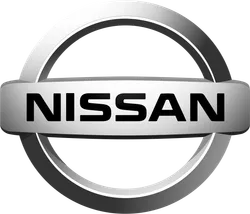

Nissan News - October 2024 Updates
Stay updated with the latest Nissan news for October 2024. Discover new models, innovations, and trends related to Nissan in Portugal.
Nissan News Summary - October 2024
Mycarro AI
Oct 31, 2024
Product Launches and Innovations
In October 2024, Nissan officially unveiled its latest electric vehicle, the Nissan Leaf 2.0, at an auto show in Tokyo. This new model boasts several enhancements over its predecessor, including a longer range of approximately 400 miles on a single charge, upgraded battery technology, and improved aerodynamics. The Leaf 2.0 features an array of technological advancements, including a cutting-edge driver assistance system and a redesigned infotainment interface that integrates seamlessly with modern smartphone operating systems. These attributes align with Nissan's commitment to electrification and sustainability, as the company continues its shift towards more eco-friendly transportation solutions.
Strategic Partnerships
Nissan has also been active in forming strategic partnerships to bolster its electric vehicle initiatives. In October, they entered into a cooperative agreement with a leading renewable energy provider, aiming to create a charging network that is both efficient and sustainable. This collaboration seeks to enhance the electric charging infrastructure, particularly in urban areas, making it more accessible for potential EV buyers. Nissan's executives highlighted the importance of collaboration with other industries to promote electric mobility and to tackle the challenges associated with scalability and energy supply.
Focus on Sustainability
As part of its corporate social responsibility efforts, Nissan has reaffirmed its commitment to sustainability by announcing the launch of a new program aimed at reducing carbon emissions throughout its supply chain. This program will focus on sourcing materials responsibly and enhancing the recyclability of its vehicles. Nissan officials emphasized that sustainability is not merely a trend but a foundational principle that will guide their future operations and product development. The initiative reflects growing consumer demands for eco-conscious practices and products in the automotive industry.
Market Performance
In terms of market performance, Nissan reported an uptick in sales figures for the October quarter, particularly for its range of SUVs and crossovers. Consumer interest in the brand's latest models appears robust, attributed to favorable financing terms and attractive leasing options. However, Nissan executives also noted challenges, such as ongoing supply chain disruptions and rising material costs, which they believe might impact future production capabilities. The automotive industry remains in a transitional phase with varying dynamics, and Nissan's strategies are designed to adapt to these changes.
Future Outlook
Looking ahead, Nissan continues to focus on its long-term electrification strategy, which includes the ambitious goal of having 50% of its global sales come from electric vehicles by 2030. In discussions held during October, Nissan executives shared insights into upcoming models and technologies that will further the company’s goal of zero emissions. The brand’s investments in research and development are expected to yield a new generation of EVs that combine performance with sustainability. The commitment to innovation and embracing electric mobility signifies Nissan's positioning as a key player in the evolving automotive landscape.
In summary, October 2024 has seen Nissan making strides in product launches, strategic partnerships, and sustainability initiatives, while navigating the challenges of the current market. The direction Nissan is taking reflects a focused approach towards a greener future and adaptability in an ever-changing industry.